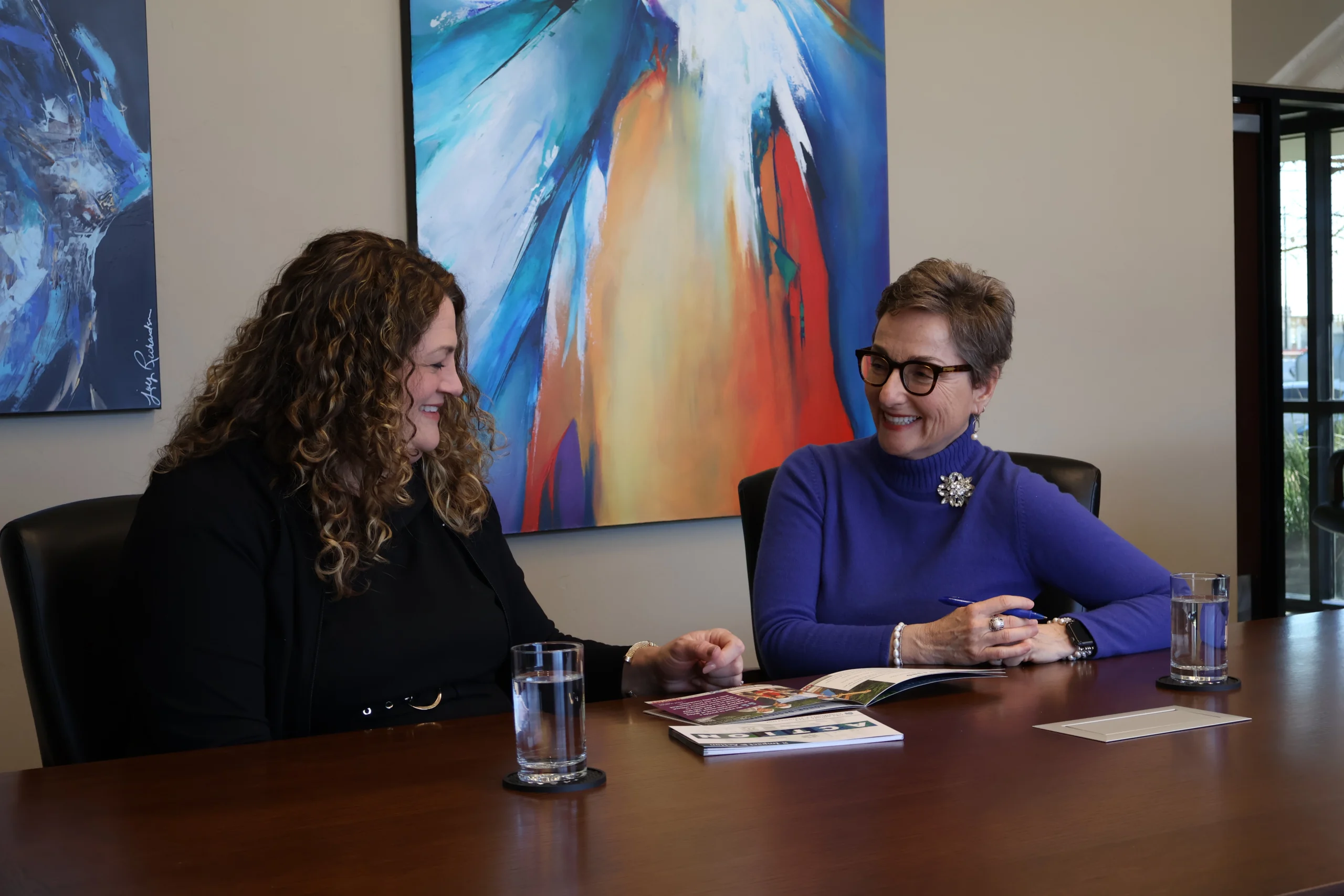Donor-Advised Funds: Flexible, Tax-Friendly and That’s Just the Beginning
By Julie Dais, CAP, Director of Gift Planning
As attorneys, CPAs and financial advisors, you’ve no doubt noticed that financial publications’ coverage of donor-advised funds is increasing. This is no surprise, considering that these popular vehicles can help your clients achieve both their financial and philanthropic goals.
What many advisors don’t realize is that a donor-advised fund at the Oklahoma City Community Foundation is not only useful as a standalone tool, but even more importantly, it can serve as the flexible foundation of a client’s overall charitable giving portfolio. Here’s how this works:

OCCF’s Julie Dais meets with Jennifer L. Wright of Wright Law Firm.
Not all donor-advised funds are created equal. At OCCF, we partner with you and your clients to make their DAF more than a tax-efficient giving vehicle, but transform it into a dynamic, flexible foundation for giving that maximizes their impact.
Organize Annual Giving
Fundamentally, a donor-advised fund provides a centralized way for clients to manage gifts of cash, appreciated stock and other assets while maintaining flexibility in timing grant distributions to their favorite charities. This flexibility is especially important for some clients as a planning tool in 2025, before next year when the new floor and cap take effect on itemized charitable deductions. “Bunching”—or front-loading—multiple years of charitable contributions into a donor-advised fund this year can create meaningful tax advantages and provide a ready reserve of philanthropic capital for years to come.
Community Impact
OCCF’s deep understanding of local nonprofits and community priorities can help clients enhance their engagement and impact. Our team provides insights, research, and connections that help your clients understand where their dollars make the most difference—turning charitable intent into meaningful outcomes.
Variety of Fund Types
OCCF offers a wide range of options beyond just donor-advised funds. A donor-designated fund, for example, enables your client to provide long-term support to specific organizations. A field-of-interest fund targets specific causes your client cares about that are being addressed in the community by several nonprofits.
Legacy Strategies
The team at OCCF is happy to help you integrate legacy planning strategies into your clients’ charitable giving portfolios. We’ll work with you to make the process easy for your clients using simple forms to name nonprofits, charitable interest areas and even successor advisors. Whether through bequests in wills and trusts, or through beneficiary designations on life insurance or retirement accounts, naming a donor-advised or other fund at OCCF allows your clients to extend their legacy. We provide ongoing support and stewardship, ensuring your clients’ charitable intentions are preserved and aligned with evolving community needs.
What’s the bottom line? Partnering with OCCF helps your client’s donor-advised fund function not only as a tax-efficient giving vehicle, but also as the dynamic, flexible foundation of a comprehensive charitable portfolio—built to adapt through changing tax environments and community priorities.
The expert team at the Oklahoma City Community Foundation serves as a charitable giving resource to enhance the knowledgeable service you give your clients. We’ll help you structure a giving plan that maximizes tax advantages while achieving your clients’ charitable and financial goals. This newsletter is provided for informational purposes only. It is not intended as legal, accounting or financial planning advice.
